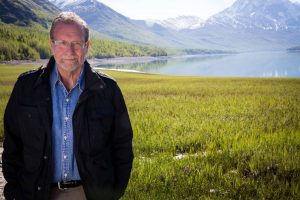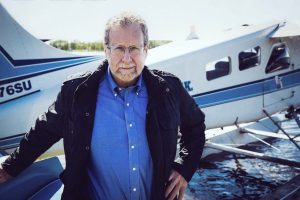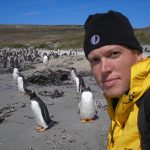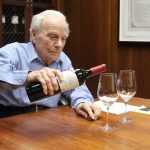 Peter Greenberg is one of America’s foremost travel correspondents and travel experts. It is admirable what he has accomplished and done for consumers (as well as his valuable contributions within the travel industry) during the past few decades.
Peter Greenberg is one of America’s foremost travel correspondents and travel experts. It is admirable what he has accomplished and done for consumers (as well as his valuable contributions within the travel industry) during the past few decades.
With someone who logs 400,000 airline miles a year, he maintains a rigorous schedule that would leave most people gasping for air! He has taken time out of this busy schedule to answer a few questions – including about his new Public Television Series, the Travel Detective, general travel Advice, the American Airlines / US Airways merger – and his decades of service as a firefighter in New York City.
You are very accomplished and certainly have had a successful career that has spanned a number of decades and incorporated work in various disciplines (travel, radio, helping develop TV shows etc). What do you personally value as “success” in your diverse career?
The key, as my mother once told me, is that it’s more important to be interested than interesting. And I’ve always tried to heed that advice. And then to apply it, especially in terms of finding, and then telling stories. Once you embrace that notion, then the synergies become apparent and available — whether you’re doing a radio show, developing a dramatic TV series, interviewing a head of state or reporting on the news of travel.
Your new Public Television Series, The Travel Detective launched earlier this fall. Tell us a little about the series and some of the tangible benefits and insights into the world of travel that viewers will gain from watching – for both travelers and non travelers alike?
I start with the premise that most travel reporting — whether in print, radio or television is overtly promotional, and I think that disrespects travel as news, as the number one industry in the world. Travel provides one out of every ten jobs, and nearly 10 percent of global GDP. It deserves to be reported as news — and often front page news. And that’s the genesis of The Travel Detective. I don’t really think my viewers want me to tell them that London is Lovely or the Bahamas is beautiful. They can figure that out for themselves. What Travel Detective does is tell them which hotels lie in their brochures, which airlines have great (and not so great) maintenance; which cruise ships are irresponsible in terms of safety, or the environment; as well as which have great kids programs and medical facilities. I firmly believe that if you can understand and appreciate the process that’s when you can actually value the product. The Travel Detective is much more about process than product.
In light of the recent American Airlines and US Airways merger – what insights can you give into how this development will affect the US airline industry as a whole?
My concern is that the continuing consolidation (and contraction) of the airlines is about to push airfares skyward more than ever; at the same time, airlines are no longer fighting for traffic they didn’t want in the first place, and as a result, they are reducing service to cities they don’t feel are giving them enough profit…And without proper (and sufficient) airlift, cities can easily shrivel and start to die….And the sad thing is — at least for the moment — there are no airlines out there either willing, or sufficiently capitalized to step in and fill all that lost capacity. I’m afraid passengers — and their wallets — may be in for a rough ride.
I recently asked a variation of this question of another traveler but would like to get your opinions. With a vastly changed “landscape of connectivity” over the fairly recent past, information overload at times and regional “worlds” that continue to shrink in terms of cross cultural exchanges and sometimes erosion thereof, can you offer some advice to the current generation of young travelers for how to have Independent authentic experiences while on the road – both benefiting themselves personally as well as those they come in contact with?
I’m a big fan of approaching travel as a contrarian. Turn left when the sign says turn right. And travel in the off season. You need to see — and then immerse yourself in local communities. That doesn’t mean you need to join the peace corps to do it (although I’m a big fan of that as well). What it DOES mean is authentic/genuine travel experiences in our brave new world usually don’t happen at a Starbucks in Beijing. If you’re staying at a hotel, don’t necessarily talk to the concierge. Talk to the maid or the bellman. Ask them where THEY hang out in their own neighborhoods — then go there. It’s not about brochures and guide books. It’s about recapturing the lost art of the conversation.
Non stop travel, especially involving planes and airport stops wears me out. In fact just a quarter of your schedule would be a full load for most people in a year! You maintain a rigorous schedule that requires you to travel more than 400,000 thousand airline miles a year. From your “road warrior” perspective what advice can you offer to make travel easier and less stressful?
It’s all about common sense, and at least my belief that I don’t get jet lag. I don’t take any jet lag pills, or do any jet lag diets. It’s really quite simple. If I feel like eating on the plane, I eat. If I feel like working on the plane, I work. If I feel like sleeping on the plane, I sleep.. The real key to being a healthy, alert road warrior is what you do once the plane lands. No matter where you’re going, and no matter what time you’re landing, stay up until at least 11pm (I do midnight myself) local time. When first landing, avoid heavy lunches. Go to a museum, shoot hoops, hang with friends — anything other than succumbing to that dreadful 3pm nap. If you stay up until 11p or midnight, you’ll cycle and be up and ready to roll at 5 or 6am the next morning.
What advice can you give those looking to make an Independent career out of travel (those with an entrepreneurial spirit and interest in creating their own brand, personal or otherwise) – whether it is through consulting, the challenging world of running an online travel community, or any of a number of self sustaining jobs in the world of travel. And related to this, how does one gain credibility in whatever field they are in?
It’s all about the world of specialized travel writing. Pick an area you know better than anyone else.
Of all your job descriptions over the years one stands out as being a bit different from the others, “active volunteer fireman in New York”. Tell us about some of your more memorable firefighting stories and how this job ended up on your resume.
The key to understanding firefighting in America is to understand that 73 per cent of all firefighters in America are volunteers. I’ve been a member of my department since I was 18 and some of my oldest friends are other firefighters. When the alarm sounds, we drop whatever else we’re doing and we work together as a group. We back each other up and we’re there to protect the community because as volunteer firefighters we are already part of the community. There are no real stories to share because what’s most important is that my fellow firefighters have a continuing dedication and commitment that deserves to be celebrated, not just in our department but all across America.
You currently call New York “home” when you are not traveling the world – what are some of your favorite activities that you would recommend to a first time visitor to this city?
When I am not traveling the world, I always am on Fire Island in New York. It’s 32 miles long and 50 miles east of Manhattan. Other than fire trucks and emergency vehicles, there are no cars on fire island. The only way you get there is by boat across the great south bay… I guarantee you your pulse rate will decrease dramatically the minute you cross that bay. And my favorite activity on fire island? The air is so crisp and clean and intoxicating that there can only be one answer: it’s the place where I sleep the best, unless, of course, the fire alarm sounds.
About Peter Greenberg
 Peter Greenberg, who logs more than 400,000 miles a year reporting for CBS News and for his nationally syndicated radio program, is considered the world’s most credible front-line travel news journalist. He is a multiple Emmy Award-winning investigative reporter and producer, and a New York Times best-selling author.
Peter Greenberg, who logs more than 400,000 miles a year reporting for CBS News and for his nationally syndicated radio program, is considered the world’s most credible front-line travel news journalist. He is a multiple Emmy Award-winning investigative reporter and producer, and a New York Times best-selling author.
He spent 14 years as the Travel Editor for NBC’s Today and 8 years as Travel Correspondent for ABC. He has been a featured guest on CNN, The Oprah Winfrey Show, The View, Late Night with Conan O’Brien, Dr. Phil, Extra, The O’Reilly Factor, and Larry King Live. He was the creator, co-executive producer and host of CNBC’s acclaimed specials “Inside American Airlines: A Week in the Life” and “Cruise Inc: Big Money on the High Seas.” Greenberg also produces and co-hosts The Royal Tour, a series of national public television specials in association with WLIW21 for WNET, in which his tour guides and co-hosts have been the King of Jordan, the Prime Ministers of Jamaica and New Zealand, and the President of Mexico. Israel: The Royal Tour premieres December 2013 on public television (check local listings), featuring Prime Minister Benjamin Netanyahu as tour guide.





Great interview! I may have to start watching The Travel Detective! I think that all hotels, airlines, etc. bend the truth a little.
Yes, it is refreshing to have things told like they are in reality – w/o sugar coating anything. That approach is certainly the most valuable for the consumer.